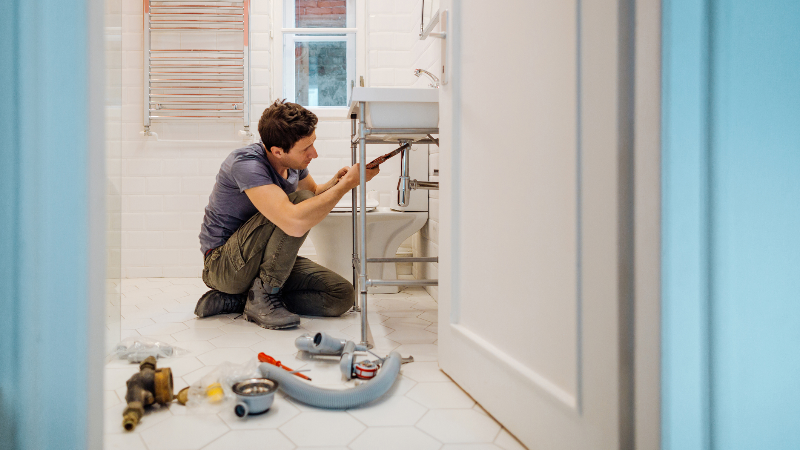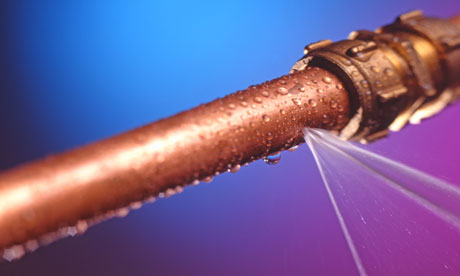Plumbing Noise Checklist
Plumbing Noise Checklist
Blog Article
On this page down the page you will find more decent details in relation to Why Do My Pipes Make Noises.

To diagnose noisy plumbing, it is very important to identify very first whether the undesirable audios happen on the system's inlet side-in various other words, when water is transformed on-or on the drainpipe side. Noises on the inlet side have differed reasons: too much water pressure, worn valve as well as tap components, poorly connected pumps or other home appliances, improperly put pipe fasteners, as well as plumbing runs consisting of way too many limited bends or various other constraints. Sounds on the drainpipe side usually stem from inadequate area or, similar to some inlet side sound, a layout including limited bends.
Hissing
Hissing sound that takes place when a tap is opened slightly typically signals extreme water stress. Consult your neighborhood water company if you think this issue; it will certainly have the ability to inform you the water stress in your area and can install a pressurereducing valve on the inbound water system pipe if required.
Thudding
Thudding noise, frequently accompanied by trembling pipes, when a faucet or appliance valve is turned off is a problem called water hammer. The sound and also resonance are triggered by the resounding wave of pressure in the water, which all of a sudden has no place to go. Sometimes opening a shutoff that releases water swiftly right into a section of piping including a restriction, arm joint, or tee installation can create the same condition.
Water hammer can generally be healed by setting up fittings called air chambers or shock absorbers in the plumbing to which the problem shutoffs or taps are linked. These devices permit the shock wave produced by the halted flow of water to dissipate in the air they have, which (unlike water) is compressible.
Older plumbing systems might have short vertical areas of capped pipeline behind walls on faucet competes the exact same purpose; these can eventually loaded with water, minimizing or destroying their performance. The remedy is to drain the water supply totally by turning off the major water system valve and also opening up all faucets. After that open up the main supply shutoff as well as close the taps one by one, beginning with the faucet nearest the valve and also ending with the one farthest away.
Babbling or Shrieking
Intense chattering or shrilling that happens when a valve or tap is turned on, which typically disappears when the installation is opened fully, signals loosened or faulty inner components. The solution is to change the valve or tap with a new one.
Pumps and also appliances such as cleaning devices and also dishwashing machines can move motor sound to pipes if they are poorly attached. Link such things to plumbing with plastic or rubber hoses-never stiff pipe-to isolate them.
Various Other Inlet Side Noises
Creaking, squealing, scraping, breaking, and touching usually are brought on by the expansion or tightening of pipes, normally copper ones providing hot water. The audios occur as the pipelines slide against loose bolts or strike nearby residence framing. You can typically pinpoint the area of the problem if the pipelines are revealed; just follow the noise when the pipelines are making noise. More than likely you will find a loosened pipe hanger or a location where pipes lie so near floor joists or other mounting pieces that they clatter against them. Affixing foam pipeline insulation around the pipes at the point of get in touch with need to fix the issue. Make certain straps as well as wall mounts are secure as well as supply ample support. Where possible, pipeline bolts should be connected to substantial architectural elements such as foundation walls as opposed to to mounting; doing so lessens the transmission of vibrations from plumbing to surface areas that can intensify and transfer them. If connecting bolts to framework is inescapable, wrap pipes with insulation or other durable product where they speak to fasteners, and sandwich the ends of new bolts in between rubber washing machines when mounting them.
Correcting plumbing runs that suffer from flow-restricting tight or various bends is a last hope that must be taken on just after consulting a competent plumbing professional. Sadly, this circumstance is relatively typical in older homes that might not have actually been developed with interior plumbing or that have actually seen a number of remodels, particularly by novices.
Drain Sound
On the drainpipe side of plumbing, the chief goals are to get rid of surfaces that can be struck by falling or rushing water and to insulate pipes to contain unavoidable audios.
In brand-new building and construction, bath tubs, shower stalls, commodes, and also wallmounted sinks and also containers ought to be set on or against resilient underlayments to decrease the transmission of sound through them. Water-saving commodes and also taps are much less noisy than conventional models; install them as opposed to older kinds even if codes in your location still permit using older fixtures.
Drains that do not run up and down to the cellar or that branch into horizontal pipe runs sustained at flooring joists or other framing existing specifically bothersome noise problems. Such pipelines are big enough to emit significant resonance; they likewise bring significant amounts of water, that makes the scenario even worse. In brand-new building, specify cast-iron soil pipelines (the big pipes that drain pipes bathrooms) if you can afford them. Their enormity consists of much of the noise made by water travelling through them. Likewise, avoid transmitting drainpipes in wall surfaces shown to bedrooms and also spaces where people gather. Wall surfaces having drains ought to be soundproofed as was described previously, utilizing double panels of sound-insulating fiber board and wallboard. Pipelines themselves can be wrapped with special fiberglass insulation produced the purpose; such pipelines have an invulnerable vinyl skin (often including lead). Outcomes are not constantly adequate.
Pipe Down! What to Do About Noisy Water Pipes
Banging
Does it sound like someone's hitting your pipes with a hammer every time you run water? The issue could be a phenomenon called water hammer, which happens when a water valve closes suddenly. You'll often hear it when your washing machine stops filling, for example. The momentum and pressure from the water flowing toward the valve create the shockwave that causes the banging noise when the valve closes suddenly. It might not seem like a big deal, but water hammer can cause damage to your pipes, including leaks and joint damage.
One way to ease water hammer is by installing water hammer arrestors. Your plumber can install them near major valves to help cushion the shock of the water when it suddenly stops or changes direction. You might also need to reduce the water pressure coming into your home with the pressure-reducing valve.
Gurgling
Gurgling sounds typically come from drainpipes. This sound happens when the water can't drain properly, usually when there's a clog in the water pipes. Drain clogs often happen due to hair, grease, soap scum or objects that fall down the drain. They can happen suddenly or build up slowly over time.
You can sometimes clear a clogged drainpipe with a plunger to help force the clog through the pipe. A plumbing snake or an auger can also help break up tough clogs. A common plumbing myth is that chemical drain cleaners are safe and effective, but they often don't work and contain harsh chemicals that can hurt you and your plumbing. If you can't remove the clog with a plunger or snake, it's best to call a plumber to help.
Rattling
Water travels through your pipes with lots of pressure, so the pipes are bound to move a little. Pipes should be secured well to keep them from moving too much when water runs through them. If they're not properly fastened or the fasteners come loose, you might hear them rattling when you run water.
Resecuring the pipes can cut down on the rattling noise and prevent damage to the joints of the water pipes. However, many pipes run behind walls where you can't easily access them. A plumber can help determine if loose fasteners are the cause of the rattling and resecure them if necessary.
Humming
If your pipes sound like they're humming, it's likely a water pressure issue. When the water pressure is high, it can cause the water pipes to vibrate and create a humming sound. High water pressure is more common if you have a well for your water, but it can happen with municipal water as well. High water pressure can damage your plumbing and cause leaks.
If you have a well, check the pressure to ensure it's below 55 pounds per square inch. A plumber can test the pressure for you and help adjust the issue if you're not sure how to do it yourself. If you're connected to the municipal water source, your home likely has a pressure-reducing valve near where the water enters your home. You can adjust the screw in the valve to decrease the pressure, but be careful not to lower it too much.
Squeaking
Squeaking or squealing is another common sound you'll hear in your water pipes. This often happens if small components within the plumbing, such as washers or aerators, become loose, dirty or damaged. When this is the cause, the squeaking sound is usually confined to a certain fixture or area of plumbing. Replaced or repairing the part should solve the noise.
If you can hear the squealing sound everywhere in your home, it could be an issue with water pressure. Buildup in the pipes narrows the space for the water, which can cause squealing as the water tries to squeeze through the pipes. Wear and tear on the plumbing system can also cause whistling or squeaking. These situations typically require a professional plumber to diagnose and repair.
https://www.homeserve.com/en-us/blog/home-improvement/water-pipes-making-noise/

I discovered that piece of writing about Why is My Home Making Strange Plumbing Noises when doing a lookup on the search engines. Sharing is caring. You never know, you could be helping someone out. Thank-you for taking the time to read it.
Estimate Report this page